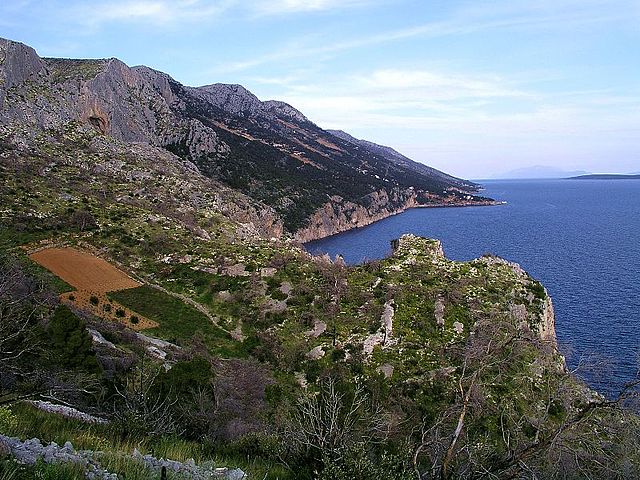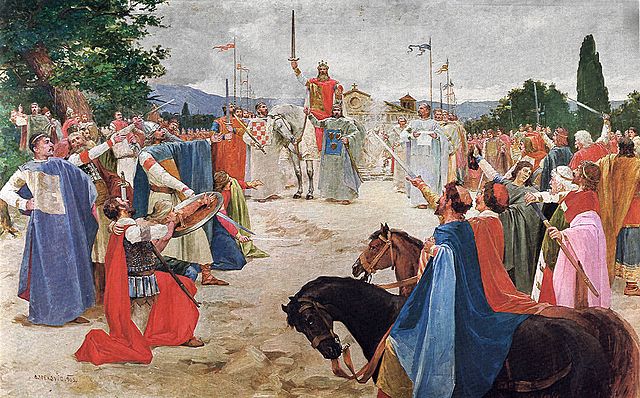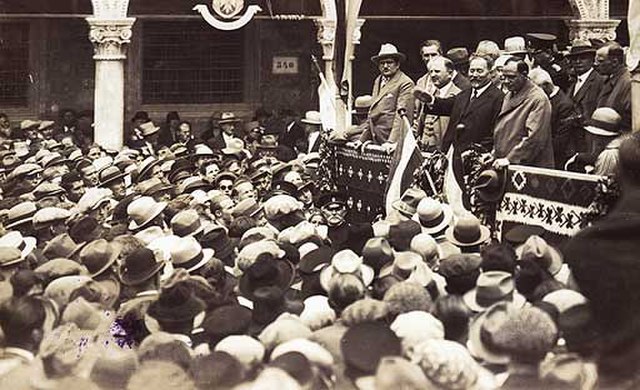Hvar is a Croatian island in the Adriatic Sea, located off the Dalmatian coast, lying between the islands of Brač, Vis and Korčula. Approximately 68 kilometres (42.25 mi) long, with a high east–west ridge of Mesozoic limestone and dolomite, the island of Hvar is unusual in the area for having a large fertile coastal plain, and fresh water springs. Its hillsides are covered in pine forests, with vineyards, olive groves, fruit orchards and lavender fields in the agricultural areas. The climate is characterized by mild winters, and warm summers with many hours of sunshine. The island has 10,678 residents according to the 2021 census, making it the 4th most populated of the Croatian islands.
A view of the town of Hvar from the fortress
Jagodna beach between the villages of Ivan Dolac and Sveta Nedilja
The southern coast of Hvar near Sveta Nedjelja
Spanish Fortress in Hvar town
Croatia, officially the Republic of Croatia, is a country located at the crossroads of Central and Southeast Europe. Its coast lies entirely on the Adriatic Sea. Croatia borders Slovenia to the northwest, Hungary to the northeast, Serbia to the east, Bosnia and Herzegovina and Montenegro to the southeast, and shares a maritime border with Italy to the west. Its capital and largest city, Zagreb, forms one of the country's primary subdivisions, with twenty counties. Other major urban centers include Split, Rijeka and Osijek. The country spans 56,594 square kilometres, and has a population of nearly 3.9 million.
Coronation of King Tomislav by Oton Iveković
Ban Josip Jelačić at the opening of the first modern Croatian Parliament (Sabor), June 5, 1848. The Croatian tricolour flag can be seen in the background.
Mass protests in Zagreb against the unification of the State of Slovenes, Croats and Serbs with the Kingdom of Serbia in 1918.
Stjepan Radić, leader of the Croatian Peasant Party who advocated federal organisation of the Yugoslavia at the assembly in Dubrovnik, 1928. His death at the end of the same year as a result of an assassination in the National Assembly by NRS member, Serbian nationalist politician Puniša Račić, leads the country to a serious political crisis.








